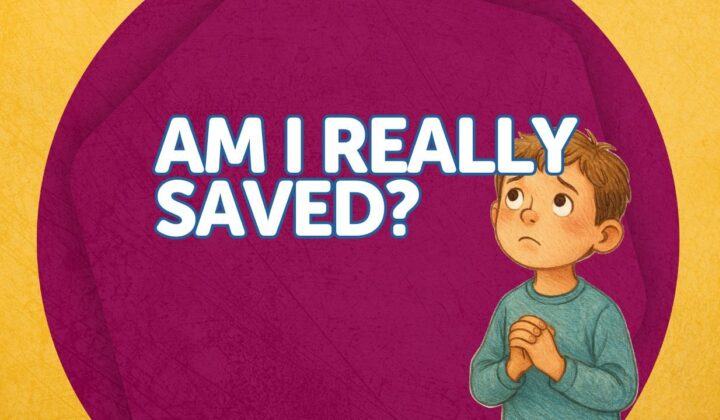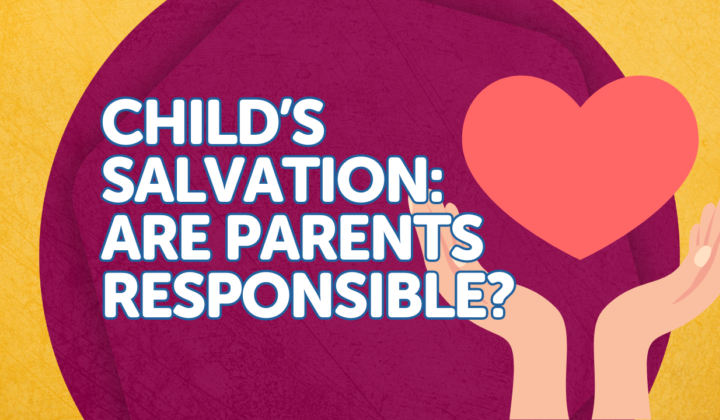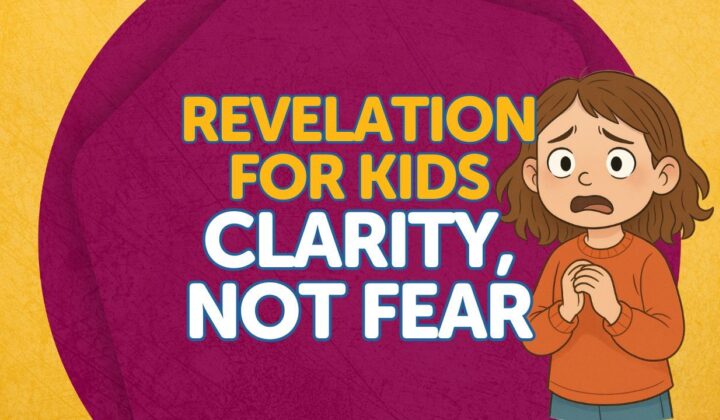Learn more about the journey that led to us equipping kids to carefully evaluate every idea they encounter.
Meet members of our team who have contributed to curriculum development.
Hear from real users of the Foundation Curriculum.
Learn what we believe about God, Jesus, Scripture, and more.
Is Spanking Biblical? What the Bible Really Says About Physical Discipline
Hello friends! Today's podcast question asks: "What is a biblical perspective on spanking? As a form of discipline, my husband and I do occasionally implement spanking for our children, ages seven, five, and two. However, are we setting a bad example or even being hypocritical if we spank—after all, we discipline our children if they hit others?"
This is such a good question that I've heard numerous times from parents. We'll dive into two main questions:
- What is the biblical perspective on spanking?
- Are we being hypocritical if we discipline our children for hitting others while using spanking as a form of discipline?
Welcome to the Foundation Worldview Podcast, where we seek to answer your questions so you can equip the children God has placed in your care to carefully evaluate every idea they encounter and understand the truth of the biblical worldview.
Even if you already have strong opinions about spanking or your children have aged out of this form of discipline, please don't tune out. This is an important topic for all Christians to consider, as there will always be people in our sphere of influence who are thinking through these questions with their children.
What is the Biblical Perspective on Spanking?
First, it's important to note that the Bible never uses the term "spanking." This is because the word wasn't used in the ancient Near East or Greco-Roman world. Instead, the biblical term for physical correction is "the rod."
This term appears multiple times in Proverbs. In Hebrew, the word for rod is "shebet" (שֵׁבֶט), which in the ancient Near East symbolized authority. Think of a king holding out his scepter—that scepter is a rod representing authority. Shepherds also used this rod as a tool to cause physical discomfort to sheep in order to protect them from harm. For example, if a sheep was getting too close to a cliff, the shepherd would use the rod to poke their side or prod their legs, causing physical discomfort to keep them away from danger.
Let's look at how this term is used in Scripture. There are four specific verses in Proverbs that couple "the rod" with disciplining children:
- Proverbs 13:24 – "Whoever spares the rod hates his son, but he who loves him is diligent to discipline him."
- Proverbs 22:15 – "Folly is bound up in the heart of a child, but the rod of discipline drives it far from him."
- Proverbs 23:13-14 – "Do not withhold discipline from a child. If you strike him with a rod, he will not die. If you strike him with the rod, you will save his soul from Sheol."
- Proverbs 29:15 – "The rod and reproof give wisdom, but a child left to himself brings shame to his mother."
You may have noticed that the term "rod" is frequently coupled with "discipline" and "reproof." This indicates that there are multiple forms of consequences that can and should be implemented with our children. Physical discipline (spanking) is not the only form available to us, nor is it the only wise form to use. However, these passages make clear that from God's perspective, implementing physically inflicted consequences—what we now call spankings—are not only wise but necessary for training our children to live rightly.
I need to issue an apology here. Several years ago, someone asked, "Is it okay to discipline our children without implementing spankings?" In my response, I concluded that spankings were not necessary. While I still agree that there are other forms of discipline that are wise to use, after deeper study of these verses, I've come to the conclusion that I was wrong. Scripture seems very clear that implementing physical consequences with our children is not only wise but viewed by God as necessary for training them in the way they should go.
I want to ask for your forgiveness for misleading you. I didn't intend to, but I did. We've actually removed that video from our website because the conclusion wasn't biblically accurate. When we look at these Proverbs, sparing the rod—sparing our children from this physical form of discipline—is equivalent to hating them, allowing them to continue in folly, withholding training and wisdom, and sending their soul to the grave. This is very serious.
I know this perspective might make some listeners angry, as spanking is viewed negatively in the West currently. I understand we may lose followers over this. However, I must be faithful to Scripture.
Some argue that "the rod" in these passages is symbolic and doesn't equate to physical punishment. While discipline and reproof are indeed coupled with the rod, showing that other forms of discipline are wise to use, Proverbs 23:13-14 specifically talks about "striking a child with a rod," indicating physical consequences.
How Should Spanking Be Implemented?
Now that we've established that spanking is a necessary form of discipline, how should it be used? Scripture always interprets Scripture, so we need to consider several relevant passages:
- Psalm 23:4 – "Your rod and your staff, they comfort me." This verse shows the rod as a shepherd's tool. The rod should be implemented in alignment with how a shepherd would use it—not to beat or abuse the sheep, but to correct them out of love. Our children should know that spanking is being implemented out of love and a desire for them to learn to live rightly. They should understand why they're being spanked; it shouldn't come out of nowhere.
- Galatians 6:1 – "Brothers, if anyone is caught in any transgression, you who are spiritual should restore him in a spirit of gentleness. Keep watch on yourself lest you too be tempted." While this passage is about restoring Christians who have sinned, it applies to our children as well. The rod should be used with gentleness. This doesn't mean the spanking shouldn't hurt—it should. But gentleness here means without anger, retribution, or self-righteousness. Spanking should never be done out of anger for what our child has done or a desire to pay them back. We shouldn't enjoy inflicting hurt, but understand that what we're doing is ultimately saving their soul from danger—just as a shepherd's rod saves sheep from falling off a cliff.
- Ephesians 6:4 – "Fathers, do not provoke your children to anger, but bring them up in the discipline and instruction of the Lord." Parents are instructed not to provoke their children to anger, which means spanking should not be done out of anger or frustration. If we spank our children out of anger or use it as an opportunity to vent our frustration, we're provoking them to anger, violating God's command, and sinning against our child. As Galatians 6:1 warns, "Keep watch on yourself lest you too be tempted." We must approach discipline with a humble heart.
As I've mentioned, the passages in Proverbs couple "the rod" with "discipline" and "reproof," indicating there are other forms of discipline that are wise and necessary. Spanking is not always the right option, though sometimes it is necessary.
For a more detailed analysis of why, when, and how we should spank biblically, I highly recommend the book "Don't Make Me Count to Three" by Ginger Hubbard. She devotes about a third of her book to this concept of the rod and its proper use.
To summarize, the biblical perspective on spanking is that it is a wise and necessary form of discipline that should be implemented out of love for our children and a desire to train them in the way they should go.
Are We Being Hypocritical?
Now to the second question: Are we being hypocritical if we spank our children yet teach them that hitting others is wrong?
I've heard many young mothers wrestle with this: "I'm using spanking as discipline, but when my daughter hits me or swats my hand away, I discipline her. Am I being hypocritical?"
The answer could be yes or no, depending on how we implement discipline:
- If we spank our children out of anger or as a means to vent our frustration, then yes, we are being hypocritical. We're sinning against our children in the same way we're teaching them not to sin against others. We're saying, "Do as I say, not as I do."
- If this describes your approach, don't give up spanking as a form of discipline. Instead, figure out what needs to be in place for you to calm your heart and mind so you can discipline your child in a spirit of gentleness and humility.
- If we spank our children out of love, with gentleness and humility, desiring to train them in the way they should go, then no, this is not hypocritical. God has placed us in a position of authority over our children—a position they don't currently have. We're called to guide them in ways they aren't called to guide others.
Our world often laughs at this concept because authority is frequently seen as an abuse of power. Can authority easily fall into abuse? Absolutely, because we live in a fallen world. However, that doesn't mean we should reject authority. God has established certain authority structures, and these are good things.
We need to help our children understand that the authority God has given us in the home is not an authority they currently have. I recently observed this with a friend who asks her children, "Are you obeying mama's word?" when they don't obey immediately. Her 4-year-old once came to her upset that her 6-year-old sister was "not obeying my word." My friend had to explain, "Your sister doesn't need to obey your word. You are not your sister's mom. I am your mom. God has put me in a place where you need to obey my word, but your sister does not need to obey your word."
Our children need to understand that authority structures are different. This doesn't diminish their value or worth; they simply have a different role in the home than the one God has given us as parents.
Conclusion
I hope you're walking away from this podcast with a clear understanding that the biblical perspective on spanking is that it is a wise and necessary form of discipline that should be implemented out of love for our children and a desire to train them in the way they should go.
Thank you to those who have written reviews of the Foundation Worldview Podcast on Apple Podcasts. Your reviews not only encourage our team but help our content reach more people despite algorithm suppression.
If you have a question for a future podcast, please submit it at FoundationWorldview.com/podcast.
As we conclude, my prayer for you is that no matter the situation in which you and the children God has placed in your care find yourselves, you would trust that God is working all things together for your good by using all things to conform you more into the image of His Son.
Join Our Community of Biblical Parents
Are you wrestling with how to apply biblical principles to your parenting? Don't miss future episodes like this one! Join our email list today and receive practical, biblical guidance for disciplining and discipling your children in today's challenging world. You'll get exclusive resources on topics like this one, plus early access to new content. Sign up at FoundationWorldview.com/email to become part of our community of parents committed to raising children with a solid biblical foundation. Together, we can equip the next generation to stand firm in their faith.
Related Posts and insights

Helping Kids Find Assurance of Salvation
Help your child overcome fears about salvation. Learn how to ask the right questions, share key Scriptures, and guide them to true assurance in Christ.

Are Parents Responsible for Their Child's Salvation?
Today's question says, "Am I responsible for my children's salvation? I get very contradicting messages from people. My pastor says it's God's responsibility, but I can't shake the feeling that I will answer God for what my children choose at the end of the day."

Helping Kids Understand Revelation Without Fear
"Wondering how to talk to your kids about the end times and Revelation? Elizabeth Urbanowicz shares biblical guidance for equipping children without fear.



